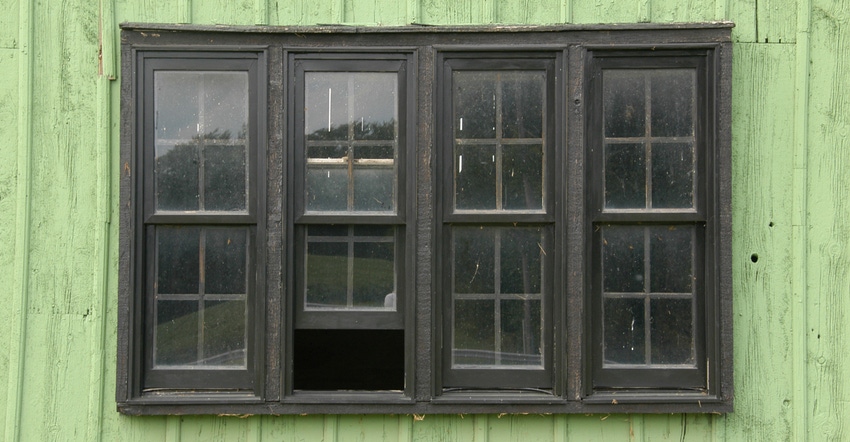September 17, 2020

I don’t remember a time when people said things like, “Man, that Illinois is a well-run state.” Or when we were in good financial shape.
My generation has watched nearly 170,000 people flee the state from 2010 to 2019; as a percentage of population, only West Virginia has us beat. Downstate, our votes won’t sway a statewide election if we don’t want what Chicago wants. And unfunded pension liabilities are contributing to a $7.4 billion budget deficit next year. I’m not sure I remember life before unfunded pensions.
Heck, I barely remember when our governors weren’t in prison.
What I’m saying is, aside from 12 inches of topsoil and occasionally good corn-growing rainfall, Illinois is a tough place to call home.
That’s especially true in an election year. We’re voting for a president this year, and if you check out our story on presidential candidates, you’ll get a look at what the candidates have to say about ag policy. Read carefully and consider what they do and don’t say.
In state, we’re not electing leadership, but we’re voting on a ballot initiative that will have longer ramifications: a yes or no vote for an Illinois constitutional amendment that would change our income tax from a flat rate to a graduated rate (also known as progressive). Here is how it’ll look on the ballot:
YES / NO For the proposed amendment of Section 3 of Article IX of the Illinois Constitution.
• A “yes” vote supports repealing the state’s constitutional requirement that the state personal income tax be a flat rate and instead allow the state to enact legislation for a graduated income tax.
• A “no” vote opposes this constitutional amendment, thus continuing to require that the state personal income tax be a flat rate and prohibit a graduated income tax.
Taking sides
Proponents say we need the money to pay down debt. They also tell us the flat tax, which was enacted by the 1968 Legislature, is inherently unfair. Forty-one states have some kind of income tax; of those, 34 have a graduated tax.
But Kevin Semlow, Illinois Farm Bureau, says our neighbors with graduated taxes are set to kick in at a lower rate. For example, Missouri’s top marginal income tax bracket stands at 5.4%. If Illinois voters pass our measure, the highest earners would be taxed at 7.99%.
Here’s a look at how the proposed graduated tax would play out come Jan. 1, 2021:
$0-$10,000: 4.75%
$10,000-$100,000: 4.90%
$100,000-$250,000: 4.95% (the current flat tax rate)
$250,000-$350,000: 7.75%
$350,000-$750,000: 7.85%
$750,000-plus: 7.99%
Opponents, like the Farm Bureau and the Illinois Chamber of Commerce, say this amendment will swing wide the door for the General Assembly to tax however it wants. They point out the graduated income tax is projected to raise somewhere between $1.4 billion and $3.4 billion, which only throws some dirt in that $7.4 billion hole. That’s still a lot of billions left.
Proponents say trust us. We’ll only tax the rich — not the middle class. We need this to prevent budget crisis after budget crisis. Trust us.
Restructure, then tax
Do we trust Illinois politicians, who have buried taxpayers under layers of pension debt and sealed it with broken promises? For decades, they’ve pretended to be surprised by the pension crisis, then acted like it was some inevitable thing they had no control over. Like a hurricane. Or a derecho.
What to do? We’re $7.4 billion in the hole, and we need the money. Those who have more should pay more, and Prairie Farmer has long championed farmers who care for their neighbors. We want people to have what they need.
But absent in this entire conversation is any mention of overhauling the public pension system. Want us to get on board with new taxes? Put an amendment on the ballot to reform public pensions. Get rid of cost-of-living adjustments on pensions — they’re only digging the hole deeper faster. Reform doesn’t mean breaking pension promises; it means fixing the system so we don’t continue down this hole indefinitely.
That would demonstrate real commitment to fixing this mess.
Instead, Illinois leaders just talk about how much money they need to prop it all up. It’s a little like running a 20-year-old combine with 5,000 hours that breaks down every October. It bleeds money in repairs and costs you in downtime, but you insist the combine isn’t the problem. The combine’s fine, you just need more money to cover it all. That’s the real problem. So every year, you shuffle money around to fix that combine. You cut fertilizer here, you let weeds get away there, and before you know it, your landlords are fleeing for other (better) tenants.
For heaven’s sake, get rid of the combine.
Address the real problem. Illinois leaders can’t keep taxing without reforming pensions and restructuring government. Leadership has to take a hard look at across-the-board departmental cuts — like the kind the Illinois Department of Agriculture has already taken in the past 15 years. Cut spending and reduce bureaucratic bloat in a state that has 7,000 separate taxing entities — 40% more than runner-up states.
Agriculture wants to be part of the solution. We’re willing to pay our fair share. But state government has to deal with the combine in the living room first.
Comments? Email [email protected].
You May Also Like




